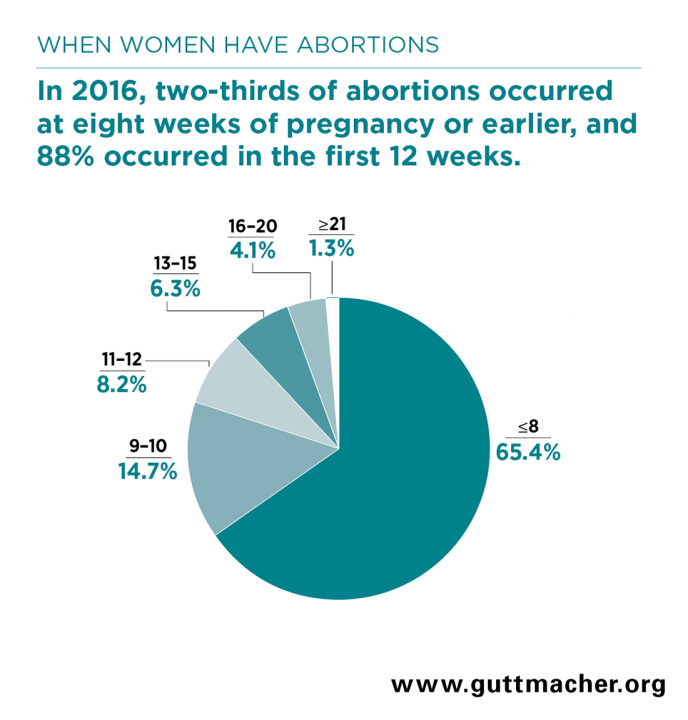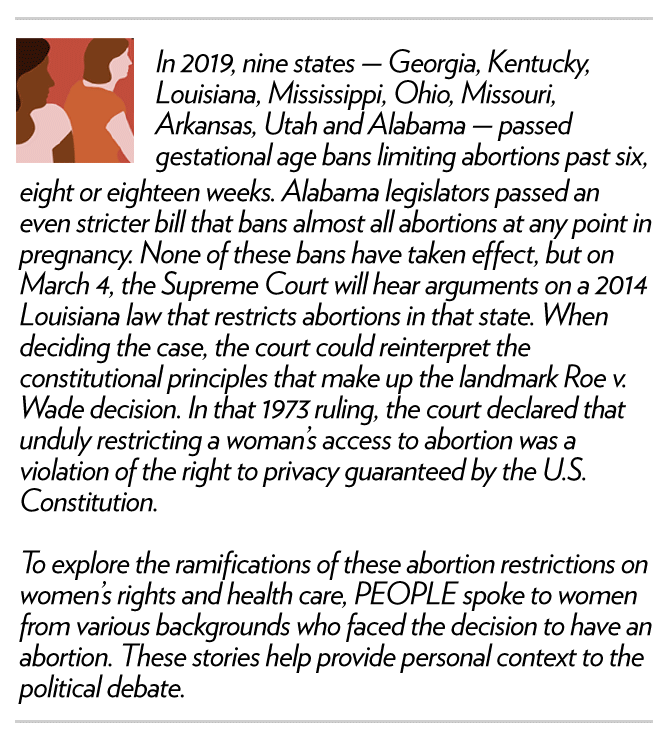I Was in an Emotionally Abusive Relationship and Too Ashamed to Tell Anyone About My Abortion
I was a freshman at the University of Houston when I got pregnant. I was 19 years old, working two jobs — and I was in an unhealthy relationship. There was a lot of emotional abuse. My immediate reaction was, I cannot be pregnant right now. I can’t be a mother. I felt so young and was focused on school and just getting by.
At the time, I was volunteering at Planned Parenthood. I was a clinic escort, walking patients into the building, guarding them from protestors. But it obviously became extremely personal when I found out that I was pregnant. I immediately felt a lot of shame, a lot of stigma, and, not to mention, I had little support from my partner at the time and didn’t seek it out from friends or family members. I didn’t tell my parents, and I struggled to come up with the money for the procedure.
It was a really, really hard moment for me to think about how I could get through school and raise a child with a partner who had mental health issues. He later died by suicide and I’ve often wondered, if I would have had the child, would they be without a father now?
The conversation around abortion doesn’t start and stop with the procedure itself. It’s more than that. It’s the decision-making process. There’s a series of conversations that you have with yourself when you’re considering an abortion — you have to think about what your life is like, and what your life is going to be like. I had to think about the kind of trust I had with myself, my community, my partner. And I had to envision what it would be like to become a parent in the conditions that I was living in.

Even within my big pro-choice bubble, I felt an enormous amount of fear and shame about abortion, but it’s internalized stigma. I actually chose to go to a different clinic because I was afraid of being recognized by other volunteers or patient escorts or even staff at Planned Parenthood. I couldn’t confront my own feelings in that moment.
I was around five weeks pregnant when I had the procedure, and afterward I felt relief. I actually had dinner plans with my mom that night and thought I’d be able to go. My mom came over to pick me up and could instantly tell something was going on with me. I had some cramping and soreness and was emotional too; I just started crying and told her what happened. Her response was actually extremely empathetic. She just turned to me and she said, “I wish you would have told me. I would have gone with you.”
That was a really big moment for me because I realized I had support that I didn’t know I had. I was ashamed and scared of what my mom might say or feel. I worried she’d think I had let her down. So I didn’t tell her. But I found out she just wanted to be there for her daughter. If anything, I think that experience brought us closer together. Even if she couldn’t be there before, it meant the world to me that she was there after.
No one deserves to feel alone when faced with the decision of whether to have an abortion, or like they can’t tell their mother or their friend because they’re scared. It’s something that should be normalized because we need support. At that moment I knew this would be something that would deepen and strengthen my fight for access to abortion. I would dedicate my entire life to ensuring that other people in my community and my state wouldn’t have to feel alone or isolated and could get the support that they need.
RELATED: Here’s What You Should Know About the New Wave of Anti-Abortion Laws
I didn’t share my story for about seven years. It’s still kind of hard for me to talk about. I have built a career around reproductive health rights and justice work — I’m now the executive director of Lilith Fund, which provides money to women in Texas who need abortions. I’ve been an activist for over 10 years. I ended up finding We Testify and met other storytellers whose experiences validated everything I had been through. I’ve realized that it’s just so critical, especially when you think about the mainstream narratives of abortion and the people who have abortions, that we don’t hide our stories. The mainstream abortion story is very much centered around white women, white bodies, white straight women. We have to keep pushing the envelope to include women of color, queer women, immigrants and non-binary people to reflect the reality of the people most impacted by abortion care. We’re also demonstrating the diversity of experiences. As a queer woman of color, I finally feel like I have a political home here.
As told to Julie Mazziotta


